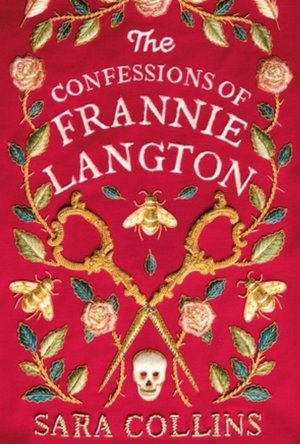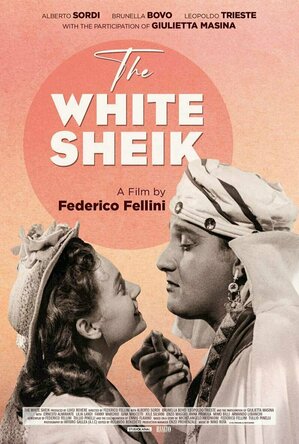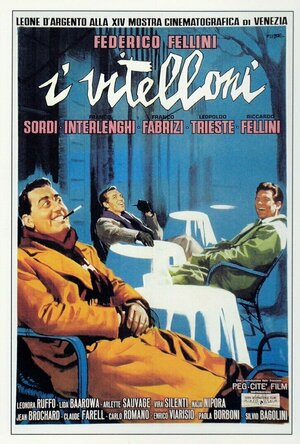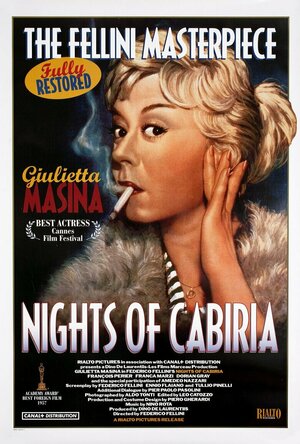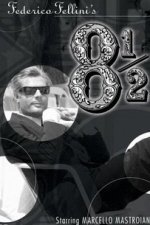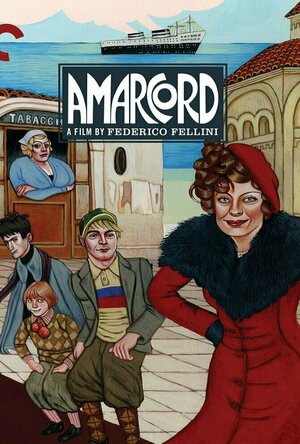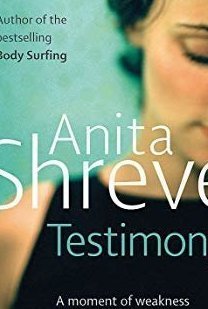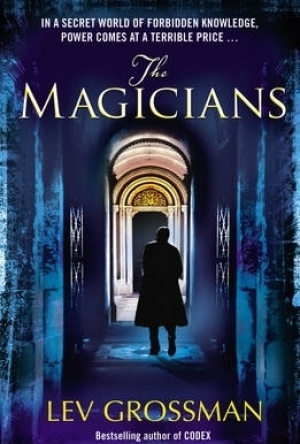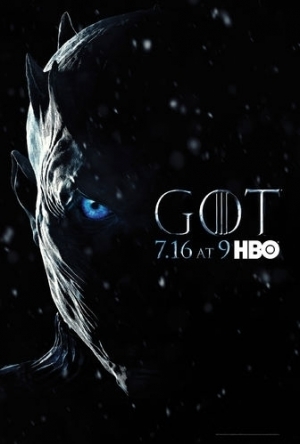Search
Search results
Zoe Nock (13 KP) rated The Confessions of Frannie Langton in Books
Jun 26, 2019
“My trial starts the way my life did: a squall of elbows and shoving and spit.”
Sometimes a book just grabs you from the beginning, something tells you that treasure lies here. I felt that within a few paragraphs of The Confessions of Frannie Langton. Sara Collins prefaced the novel with an explanation of her enjoyment of stories from Georgian/Victorian era but also her disappoint that she didn’t feel represented in the literature from that time. Her love of literature and that lack of inclusion drove her to write a novel that filled a gap, filled a need for women like Frances Langton to have a voice.
And what a voice! The author embodies Frannie so well. The first thing that struck me was that Frannie’s voice shone through immediately. She sounds so authentic, within a few lines you are engaged and intrigued. So much of the prose is beautiful and evocative, truly poetic. Sara Collins describes the people and places so deftly, you sense the weight of a sultry Jamaican plantation and the drabness of a grey London suburb. You can almost taste the boiling sugar cane and fall under the sway of the delicious, devilish ‘Black Drop’. It’s difficult to read this book without imagining a BBC period drama, it really would make a good screen adaptation. There is no doubt that Collins is a gifted and accomplished writer, a weaver of words both seductive and threatening. I really enjoyed this novel and would like to read anything new from Sara Collins.
Sometimes a book just grabs you from the beginning, something tells you that treasure lies here. I felt that within a few paragraphs of The Confessions of Frannie Langton. Sara Collins prefaced the novel with an explanation of her enjoyment of stories from Georgian/Victorian era but also her disappoint that she didn’t feel represented in the literature from that time. Her love of literature and that lack of inclusion drove her to write a novel that filled a gap, filled a need for women like Frances Langton to have a voice.
And what a voice! The author embodies Frannie so well. The first thing that struck me was that Frannie’s voice shone through immediately. She sounds so authentic, within a few lines you are engaged and intrigued. So much of the prose is beautiful and evocative, truly poetic. Sara Collins describes the people and places so deftly, you sense the weight of a sultry Jamaican plantation and the drabness of a grey London suburb. You can almost taste the boiling sugar cane and fall under the sway of the delicious, devilish ‘Black Drop’. It’s difficult to read this book without imagining a BBC period drama, it really would make a good screen adaptation. There is no doubt that Collins is a gifted and accomplished writer, a weaver of words both seductive and threatening. I really enjoyed this novel and would like to read anything new from Sara Collins.
Merissa (11646 KP) rated The Starfolk Arcana (The Starfolk Trilogy #1) by Martha Dunlop in Books
Jul 21, 2022 (Updated Jul 26, 2023)
THE STARFOLK ARCANA is the first book in the Starfolk Trilogy and we are introduced to a contemporary world where Beth has never felt as though she fitted in, due to her gut feelings and intuition. On her birthday, she goes to a TV show that her friend got tickets for. There, she sees a celebrity, Amelia, who speaks a lot of nonsense but nevertheless manages to sway over the audience apart from Beth. It is also there she meets Jonan for the first time. Life is about to get a whole lot more interesting.
I wouldn't call this a romance book, but rather a story with romantic elements. There is a lot of back and forth between Beth and Jonan as they try to work together, past lives and tarot cards notwithstanding. The whole world seems to be under Amelia's spell, and they need to stop it. It is an uphill battle though, as it is easier to give in to fear than to fight it.
Full of twists and turns, you are never completely sure who to trust. I understood Beth's frustration and hope for the general population but I found her blindness to her roommate to be just as irritating for me.
It does end on a bit of a cliffhanger which definitely left me wanting more. A great read I thoroughly enjoyed and have no hesitation in recommending.
** same worded review will appear elsewhere **
* A copy of this book was provided to me with no requirements for a review. I voluntarily read this book, and the comments here are my honest opinion. *
Merissa
Archaeolibrarian - I Dig Good Books!
Jul 11, 2022
I wouldn't call this a romance book, but rather a story with romantic elements. There is a lot of back and forth between Beth and Jonan as they try to work together, past lives and tarot cards notwithstanding. The whole world seems to be under Amelia's spell, and they need to stop it. It is an uphill battle though, as it is easier to give in to fear than to fight it.
Full of twists and turns, you are never completely sure who to trust. I understood Beth's frustration and hope for the general population but I found her blindness to her roommate to be just as irritating for me.
It does end on a bit of a cliffhanger which definitely left me wanting more. A great read I thoroughly enjoyed and have no hesitation in recommending.
** same worded review will appear elsewhere **
* A copy of this book was provided to me with no requirements for a review. I voluntarily read this book, and the comments here are my honest opinion. *
Merissa
Archaeolibrarian - I Dig Good Books!
Jul 11, 2022
Greg Mottola recommended The White Sheik (1952) in Movies (curated)
Greg Mottola recommended I Vitelloni (1953) in Movies (curated)
Greg Mottola recommended Nights of Cabiria (1957) in Movies (curated)
Greg Mottola recommended 8 1/2 (1963) in Movies (curated)
Greg Mottola recommended Amarcord (1973) in Movies (curated)
Kaz (232 KP) rated Testimony. Anita Shreve in Books
May 15, 2019
An Interesting Novel
What the 'Blurb' says:
'At a New England boarding school, a sex scandal is about to break. Even more shocking than the sexual acts themselves is the fact that they were caught on videotape. A Pandora's box of revelations, the tape triggers a chorus of voice -- those of the men, women, teenagers, and parents involved in the scandal -- that details the ways in which lives can be derailed or destroyed in one foolish moment.
A gripping emotional drama with the pace of a thriller, Anita Shreve's Testimony explores the dark impulses that sway the lives of seeming innocents, and the ways in which our best intentions can lead to our worst transgressions.'
My Thoughts:
This novel is set in a prestigious private school in America, where a sex tape involving some of the pupils is found by the principal. What follows, are the after effects of such a scandal.
It actually took me over 100 pages to get into this story, mostly because of the way it was written. This shifts from different character perspectives and has very different writing styles too, so I really found it difficult to settle into this book.
I almost DNF'ed this book actually, because for quite a lot of the novel, there seemed to be a lot of negativity towards the female participant of the sex tape and the men weren't seen to be as responsible as the woman involved. Whilst the female 'victim' isn't a nice character and she is just as much to blame as the others, I was surprised that, because the writer of this book is female, that she chose to focus the blame more on her, than the men. I think that it could have been more balanced.
However, I admit that this did level out as the plot unfolded.
This book wasn't plot driven, but I think it is a good examination of the problems of teen sex and alcohol abuse. This was an interesting read.
My Rating ***
'At a New England boarding school, a sex scandal is about to break. Even more shocking than the sexual acts themselves is the fact that they were caught on videotape. A Pandora's box of revelations, the tape triggers a chorus of voice -- those of the men, women, teenagers, and parents involved in the scandal -- that details the ways in which lives can be derailed or destroyed in one foolish moment.
A gripping emotional drama with the pace of a thriller, Anita Shreve's Testimony explores the dark impulses that sway the lives of seeming innocents, and the ways in which our best intentions can lead to our worst transgressions.'
My Thoughts:
This novel is set in a prestigious private school in America, where a sex tape involving some of the pupils is found by the principal. What follows, are the after effects of such a scandal.
It actually took me over 100 pages to get into this story, mostly because of the way it was written. This shifts from different character perspectives and has very different writing styles too, so I really found it difficult to settle into this book.
I almost DNF'ed this book actually, because for quite a lot of the novel, there seemed to be a lot of negativity towards the female participant of the sex tape and the men weren't seen to be as responsible as the woman involved. Whilst the female 'victim' isn't a nice character and she is just as much to blame as the others, I was surprised that, because the writer of this book is female, that she chose to focus the blame more on her, than the men. I think that it could have been more balanced.
However, I admit that this did level out as the plot unfolded.
This book wasn't plot driven, but I think it is a good examination of the problems of teen sex and alcohol abuse. This was an interesting read.
My Rating ***
Dana (24 KP) rated The Magicians: Book 1 in Books
Mar 23, 2018
I started reading this book because I have watched the series on SyFy and fell in love. This book is much darker than the show (if that's possible) and felt a little slower just because there was more information in the book than there is in the show.
Some of the characters are different, same with the plot points, but I enjoyed it. Was it my favorite book of all time? No. But it was good. It is a fantasy book, magical realism set in the real world and a fictional one, but it was so well written you felt like it was all real. I wish there would have been more focus on the school itself and how they were learning, but speaking from experience, I understand that can be both boring and difficult to write. So I completely understand the lack.
Quentin is an asshole. I think we can all agree to that. But because he is an asshole, I trust him as a narrator that much more. He is self involved and wants whatever he wants and nothing will sway him from that (for the most part) but I still care about him. Not as much as I care about Elliot and Janet (who is Margot in the show). I love these two to no end. There were new characters that I didn't know in the books because they weren't in the show. I liked them. I think they added another bit of depth we didn't get in the series. I liked seeing more students than the like six we get in the show.
I liked the book overall and I plan to read the other two. If you are a fan of the show, pick these up. They're different enough to give more context into the inner workings of the characters that I think is a great addition if you are familiar with the show.
I know I should have started with the books, then watched the show, but I didn't know there were books until after I watched the first two seasons, so yeah.
Some of the characters are different, same with the plot points, but I enjoyed it. Was it my favorite book of all time? No. But it was good. It is a fantasy book, magical realism set in the real world and a fictional one, but it was so well written you felt like it was all real. I wish there would have been more focus on the school itself and how they were learning, but speaking from experience, I understand that can be both boring and difficult to write. So I completely understand the lack.
Quentin is an asshole. I think we can all agree to that. But because he is an asshole, I trust him as a narrator that much more. He is self involved and wants whatever he wants and nothing will sway him from that (for the most part) but I still care about him. Not as much as I care about Elliot and Janet (who is Margot in the show). I love these two to no end. There were new characters that I didn't know in the books because they weren't in the show. I liked them. I think they added another bit of depth we didn't get in the series. I liked seeing more students than the like six we get in the show.
I liked the book overall and I plan to read the other two. If you are a fan of the show, pick these up. They're different enough to give more context into the inner workings of the characters that I think is a great addition if you are familiar with the show.
I know I should have started with the books, then watched the show, but I didn't know there were books until after I watched the first two seasons, so yeah.
LeftSideCut (3778 KP) rated Game Of Thrones - Season 7 in TV
Jul 29, 2019
The start of the mad rush to the finish line
Contains spoilers, click to show
Season 7 of Game of Thrones for me, is where the show went from the most finely and carefully crafted show of all time, to dumb hollywood-esque blockbuster.
The slow burning plot of the earlier seasons have all but gone, after it was announced that season 8 would be the last, causing long gestating plotlines to be rushed towards a conclusion, and causing the show to suffer for it. It's a real shame.
Season 7 is by no means bad though, once I had swallowed my bitterness and accepted that this was how it was going to be, there was still plenty to enjoy.
The intricate character arcs may have taken a huge blow, but when Game of Thrones decides to throw out an epic set piece, it's still the undisputed king.
Danaerys has (finally!) landed in Westeros, and begins her campaign to take the Iron Throne for herself. Characters that have been embroiled in politics for seven seasons are suddenly faced with seeing dragons for the first time, and that's a pretty satisfying moment for anyone who has been watching for years.
Episode 4 in particular serves as a highlight, as Danaerys unleashes the power of her dragons on the Lannister army. It's truly a spectacle.
The same episode however unfortunately confirms that certain characters are covered in plot-armour. Last minute life saving heroics replace the once sudden brutality of beloved characters being offed (obviously referring to Bring saving Jaime here), and for the first time since this show started, everyone just sort of feels safe. It's weird.
Elsewhere, Jon Snow leads a team north of the wall to acquire proof of the White Walkers in an attempt to sway Cersei onto his side of the upcoming war.
This episode was particularly dumb, but again, a huge spectacle. Seeing Viserion plummet to the ground was a pretty epic moment, and the season of course culminates in a moment all of us had been waiting for, as a huge chunk of The Wall falls, and the Night King leads his undead army into Westeros.
It's all very stylish, but unfortunately a lot of the substance gets left by the wayside.
The slow burning plot of the earlier seasons have all but gone, after it was announced that season 8 would be the last, causing long gestating plotlines to be rushed towards a conclusion, and causing the show to suffer for it. It's a real shame.
Season 7 is by no means bad though, once I had swallowed my bitterness and accepted that this was how it was going to be, there was still plenty to enjoy.
The intricate character arcs may have taken a huge blow, but when Game of Thrones decides to throw out an epic set piece, it's still the undisputed king.
Danaerys has (finally!) landed in Westeros, and begins her campaign to take the Iron Throne for herself. Characters that have been embroiled in politics for seven seasons are suddenly faced with seeing dragons for the first time, and that's a pretty satisfying moment for anyone who has been watching for years.
Episode 4 in particular serves as a highlight, as Danaerys unleashes the power of her dragons on the Lannister army. It's truly a spectacle.
The same episode however unfortunately confirms that certain characters are covered in plot-armour. Last minute life saving heroics replace the once sudden brutality of beloved characters being offed (obviously referring to Bring saving Jaime here), and for the first time since this show started, everyone just sort of feels safe. It's weird.
Elsewhere, Jon Snow leads a team north of the wall to acquire proof of the White Walkers in an attempt to sway Cersei onto his side of the upcoming war.
This episode was particularly dumb, but again, a huge spectacle. Seeing Viserion plummet to the ground was a pretty epic moment, and the season of course culminates in a moment all of us had been waiting for, as a huge chunk of The Wall falls, and the Night King leads his undead army into Westeros.
It's all very stylish, but unfortunately a lot of the substance gets left by the wayside.
